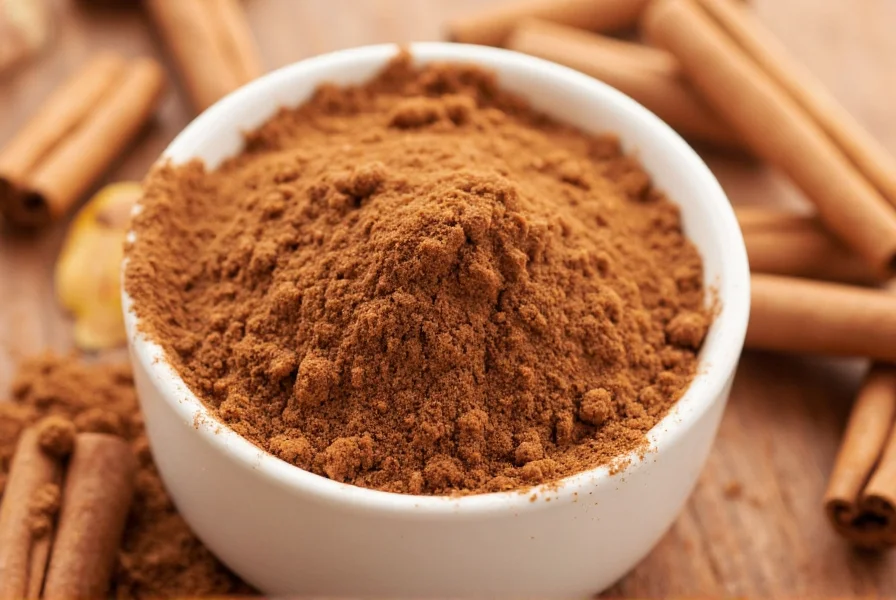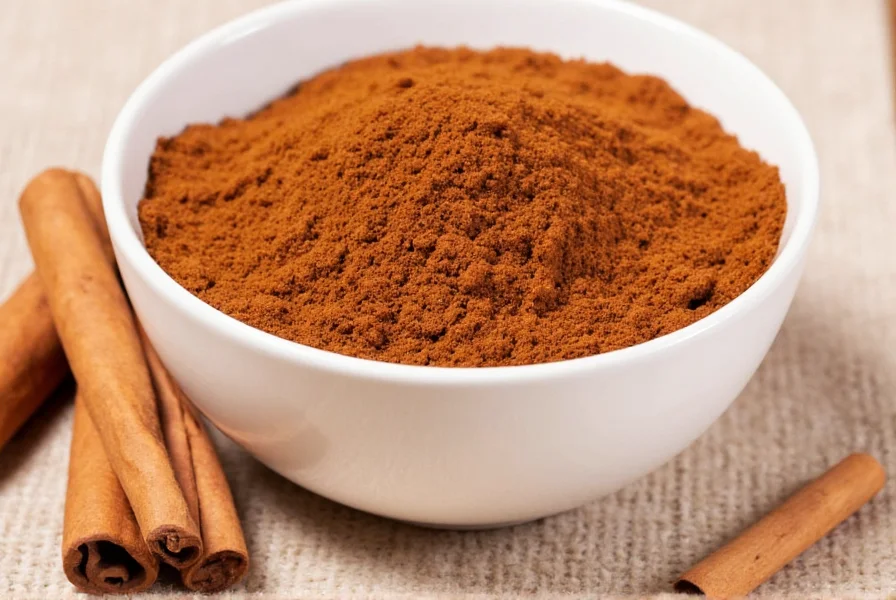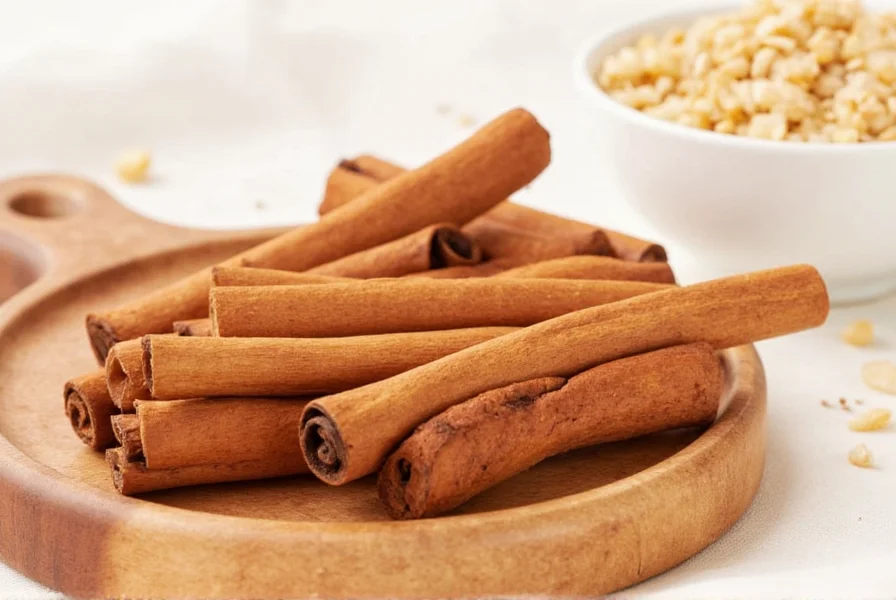For individuals managing blood sugar levels, natural approaches often spark interest alongside conventional treatments. Cinnamon has emerged as a popular subject in blood sugar management discussions, but what does the scientific evidence actually reveal about cinnamon to reduce blood sugar?
The Science Behind Cinnamon's Potential Blood Sugar Effects
Cinnamon contains bioactive compounds including cinnamaldehyde, polyphenols, and procyanidins that may influence glucose metabolism. These compounds appear to enhance insulin sensitivity and slow gastric emptying, potentially contributing to more stable blood sugar levels after meals.
Two primary varieties exist in the marketplace:
| Type of Cinnamon | Coumarin Content | Research Focus | Availability |
|---|---|---|---|
| Cassia (Chinese) | High (2-5%) | Most studied for blood sugar | Widely available, less expensive |
| Ceylon (True) | Very low (0.004%) | Less studied specifically for glucose | Specialty stores, more expensive |
Coumarin content matters because high doses over time may cause liver issues, making Ceylon cinnamon potentially safer for regular consumption despite being less researched for blood sugar effects.

What Does the Research Actually Show?
A comprehensive analysis of multiple clinical trials reveals nuanced findings about using cinnamon for blood sugar control. A 2022 meta-analysis published in Nutrition Reviews examined 16 randomized controlled trials involving over 1,300 participants with type 2 diabetes.
Key findings included:
- Participants taking 1-6 grams of cinnamon daily showed modest reductions in fasting blood glucose (average 18.2 mg/dL)
- Effects on HbA1c were less consistent, with only some studies showing improvement
- Results varied significantly based on study duration, cinnamon type, and participant characteristics
- No significant effects observed in non-diabetic populations
The research suggests cinnamon may work best as a complementary approach rather than a standalone solution for natural blood sugar regulation with cinnamon. Effects typically require consistent use over 8-12 weeks to become apparent.
Practical Considerations for Cinnamon Consumption
For those considering cinnamon supplements for glucose management, several practical factors deserve attention:
- Dosage: Most effective studies used 1-3 grams daily (about 1/2 to 1 1/2 teaspoons), with diminishing returns at higher doses
- Timing: Consuming cinnamon with carbohydrate-containing meals may maximize potential benefits
- Form: Powdered cinnamon appears equally effective as supplements in research settings
- Safety: Limit Cassia cinnamon to 1 teaspoon daily due to coumarin content; Ceylon allows for slightly higher intake
Important Limitations and Safety Considerations
While exploring cinnamon as a natural remedy for high blood sugar, several critical limitations must be acknowledged:
- Cinnamon produces significantly smaller effects than standard diabetes medications like metformin
- Individual responses vary considerably—some people see no benefit
- Not appropriate for type 1 diabetes management
- Potential interactions with blood thinners and liver-metabolized medications
- Excessive consumption may cause mouth irritation or digestive issues
People with liver conditions should exercise particular caution with Cassia cinnamon due to coumarin content. Always consult your healthcare provider before adding cinnamon to your regimen, especially if taking diabetes medications to avoid potential hypoglycemia.

Integrating Cinnamon into Comprehensive Blood Sugar Management
Viewing cinnamon within the broader context of holistic approaches to blood sugar control provides the most realistic perspective. Evidence-based strategies that typically yield greater improvements include:
- Regular physical activity (150+ minutes weekly)
- Carbohydrate monitoring and balanced nutrition
- Maintaining healthy body weight
- Adequate sleep and stress management
- Medication adherence when prescribed
Cinnamon might serve as a complementary element within this framework, but never as a replacement for proven approaches to managing blood glucose levels naturally. The most successful outcomes occur when cinnamon supplementation supports—not substitutes for—established blood sugar management practices.
Conclusion
Current evidence suggests cinnamon may offer modest support for blood sugar control in people with type 2 diabetes, but expectations should remain realistic. The effects are generally small, inconsistent across individuals, and significantly less impactful than standard medical treatments. When considering cinnamon for blood sugar regulation, prioritize safety, appropriate dosage, and integration within a comprehensive management plan developed with your healthcare provider.
Does cinnamon lower blood sugar immediately after consumption?
No, cinnamon does not lower blood sugar immediately. Research indicates effects require consistent daily consumption over 8-12 weeks to become noticeable. Any single dose has minimal acute impact on blood glucose levels.
How much cinnamon should I take daily for blood sugar benefits?
Studies showing benefits typically used 1-3 grams daily (approximately 1/2 to 1 1/2 teaspoons). Higher doses don't provide additional benefits and may increase health risks, especially with Cassia cinnamon due to its coumarin content.
Can I replace my diabetes medication with cinnamon?
Absolutely not. Cinnamon should never replace prescribed diabetes medications. Its effects are significantly weaker than standard medications, and discontinuing prescribed treatment can lead to dangerous blood sugar levels. Always consult your doctor before making changes to your diabetes management plan.
Which type of cinnamon works best for blood sugar control?
Most research has used Cassia cinnamon, which shows modest benefits but contains higher coumarin levels. Ceylon cinnamon has less coumarin but hasn't been studied as extensively for blood sugar effects. For regular consumption, Ceylon may be safer, but both types show similar potential benefits at appropriate doses.
How long does it take to see results from cinnamon for blood sugar?
Research suggests it typically takes 8-12 weeks of consistent daily consumption before potential improvements in fasting blood glucose become measurable. Individual responses vary significantly, and some people may not experience noticeable benefits even with regular use.











 浙公网安备
33010002000092号
浙公网安备
33010002000092号 浙B2-20120091-4
浙B2-20120091-4